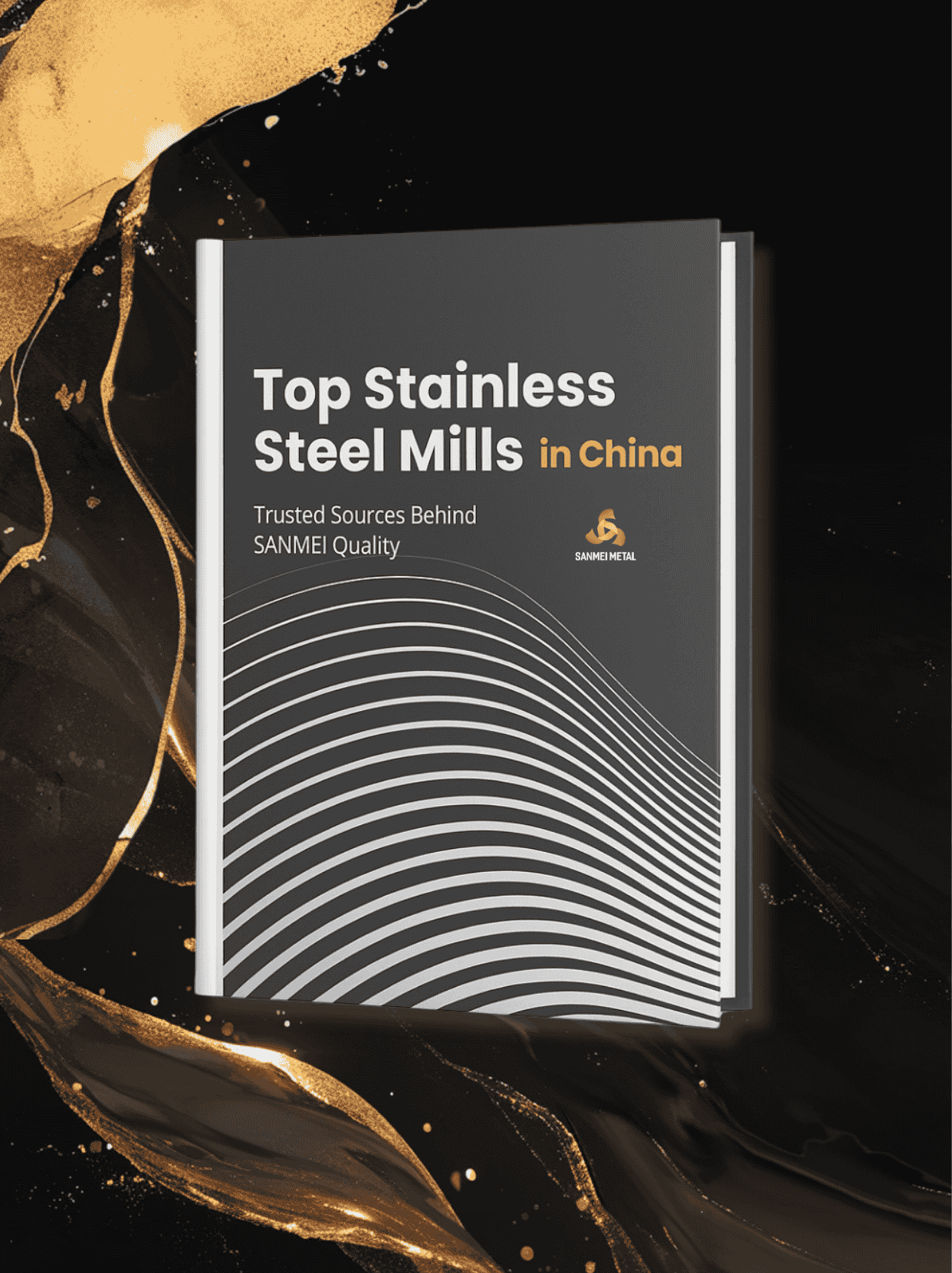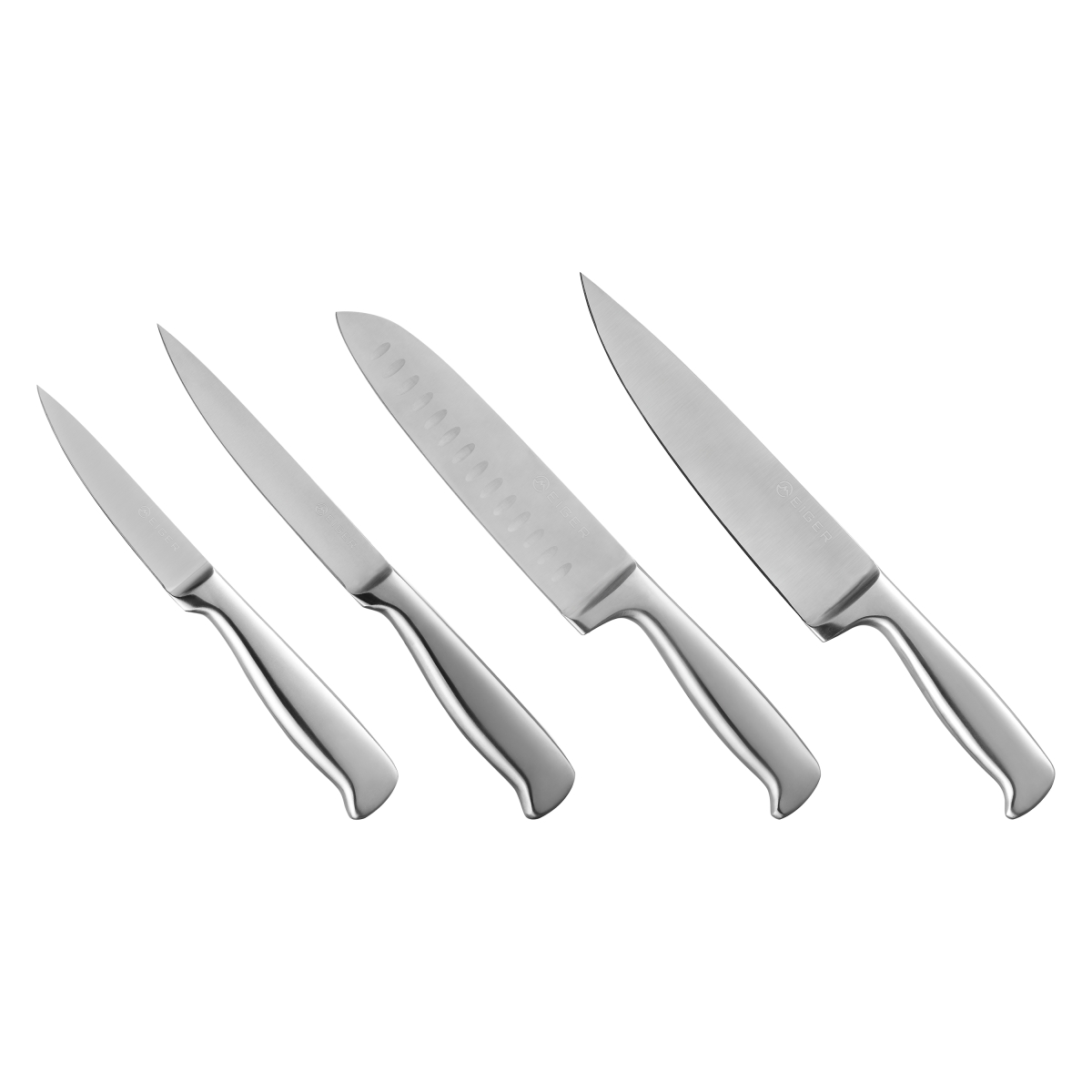
Get Your FREE Access: China’s #1 Steel Mill Dossier
Buyer-Oriented: Match mills by grade/finish/width-thickness/application
BAOWUTsingshanLiscoTisco


Excellent corrosion resistance to prevent contamination

Non-reactivity with acidic, salty, or hot foods

Smooth, cleanable surface for hygienic standards

High-temperature durability for cooking environments
Stainless steel cooking equipment, such as pots, toasters, and grills, should primarily be non-toxic and safe for food contact. Additionally, performance factors like corrosion resistance, high-temperature tolerance, and ease of cleaning and maintenance are crucial for high-quality kitchenware.
304, 304L, 316, 316L, 321, 309S, and 310S stainless steel grades are known for maintaining excellent performance in high-temperature environments and resisting rust, making them ideal for manufacturing various cooking equipment.
Stainless steel kitchen furniture and appliances must not only meet requirements for corrosion resistance and high strength but also be aesthetically pleasing as display furniture. Additionally, easy cleaning and maintenance are essential in the grease-laden kitchen environment.
304, 304L, 409, 430, 2205, 2207, 436, 439, and 441 stainless steel grades possess excellent corrosion resistance, mechanical properties, and can maintain an attractive appearance, making them suitable for manufacturing kitchen furniture and appliances.
Stainless steel used in food storage containers and utensils must not react with food. Additionally, these containers need high corrosion resistance due to additives in some foods. Easy cleaning is also a significant advantage for these materials.
Stainless steel used in cutlery and drinkware must have good hardness and wear resistance, especially for knives, where high hardness and strength are essential. For modern consumers, cutlery and drinkware are not just containers but also decorative items that enhance the aesthetic appeal of their collection.
| Grade | Key Features & Application |
|---|---|
| 201 Series (J1~J4) | Cost-effective, short-term food contact containers |
| 304 / 304L | Industry standard for food-grade use, corrosion and heat resistant |
| 316 / 316L | High-performance for acidic, salty, and seafood processing |
| 321 / 309S / 310S | High-temp resistance, perfect for industrial ovens and BBQs |
| 409L / 410 / 410S | Durable, wear-resistant, ideal for knives and cutlery |
| 420J1 / 420J2 | High hardness for cutting tools and utensils |
| 430 / 436 / 439 / 441 | Good formability and cost-efficiency, widely used in home kitchens |
| 2205 / 2207 | Duplex steels for harsh processing environments, excellent strength and corrosion resistance |
At SANMEI, we offer certified food-grade stainless steel in both coil and sheet form, with surface finishes like 2B, BA, No.4, HL, and mirror polish — ideal for kitchen equipment, appliances, and food processing lines.
But how do you know if what you're buying is truly food-safe? In markets like China, where material standards vary, it's critical to verify the source. 👉 Is the Food Grade Stainless Steel You Buy in China Really Food-Grade?
Read our guide to learn what to check — and how to choose the right supplier.
Headquarters:
Creating Center, No.142, Yuhe Road, Lecong Town, Shunde District, Foshan City, Guangdong Province, China. 528315
Factory: Liyuan Logistics City, Chencun Town, Shunde District, Foshan City, Guangdong Province, China. 528313
Australia Local Support Base: (Yatala, QLD) – Coming 2026